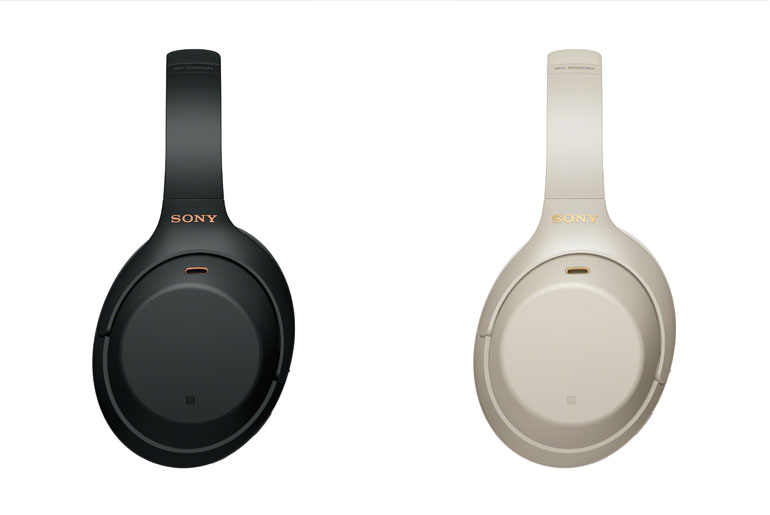Samsung Galaxy Note 20 vs Note 20 Ultra - What’s the difference - Android
At long last, the Samsung Galaxy Note 20 series have been finally made official. Both the Samsung Galaxy Note 20 and Note 20 Ultra offers some of the most high-end features on a smartphone today — both in design and specs. If you’re looking for a premium device to spend all your money in, both […] More
This article, Samsung Galaxy Note 20 vs Note 20 Ultra: What’s the difference?, was originally published at NoypiGeeks | Philippines Technology News, Reviews and How to's.
At long last, the Samsung Galaxy Note 20 series have been finally made official.
Both the Samsung Galaxy Note 20 and Note 20 Ultra offers some of the most high-end features on a smartphone today — both in design and specs.
If you’re looking for a premium device to spend all your money in, both of these devices are surely on top of your list. But the question is, which between these two should you actually get?

Here in our Samsung Galaxy Note 20 versus Note 20 Ultra specifications and features comparison, we’ll look at the key difference between the duo and ultimately help you decide which one is right for you.
| Samsung Galaxy Note 20 | Samsung Galaxy Note 20 Ultra | |
| Operating System | Android 10 One UI | Android 10 One UI |
| SIM | Dual SIM Dual Standby | Dual SIM Dual Standby Hybrid |
| Display | 6.7-inch FHD+ Dynamic AMOLED 2400 x 1080 pixel resolution ~393ppi HDR10+ 60Hz refresh rate | 6.9-inch QHD+ Dynamic AMOLED 2.0 3088 x 1440 pixel resolution ~496ppi HDR10+ 120Hz refresh rate |
| Processor | Exynos 990 octa-core procesor | Exynos 990 octa-core procesor |
| RAM | 8GB | 8GB/12GB |
| GPU | Mali-G77 MP11 | Mali-G77 MP11 |
| Storage | 256GB non-expandable | 256GB expandable via microSD |
| Front Camera | 10-megapixel f/2.2 | 10-megapixel f/2.2 |
| Rear Camera | 12-megapixel (f/1.8, Super Speed Dual Pixel AF, OIS) 12-megapixel (ultra-wide, f/2.2) 64-megapapixel (telephoto, f/2.0) LED flash 3x optical zoom 30x Super Resolution Zoom Tracking AF HDR10+ recording 8K video recording 960fps slow-mo | 108-megapixel (f/1.8, PDAF, OIS) 12-megapixel (ultra-wide, f/2.2) 12-megapixel (periscope telephoto, f/2.3) LED flash 5x optical zoom 50x Super Resolution Zoom Tracking AF HDR10+ recording 8K video recording 960fps slow-mo |
| Audio | AKG-tuned loudspeakers No headphone jack | AKG-tuned loudspeakers No headphone jack |
| Security | Ultrasonic fingerprint scanner Face unlock | Ultrasonic fingerprint scanner Face unlock |
| Others | S-Pen Wireless DeX | S-Pen Wireless DeX |
| Connectivity | 4G LTE, 5G sub-6 WiFi 802.11 ab/g/n/ac/ax, dual-band Bluetooth 5.0 NFC GPS, A-GPS USB Type-C | 5G (12GB model) 4G LTE, 5G sub-6 Ultra-Wideband Technology WiFi 802.11 ab/g/n/ac/ax, dual-band Bluetooth 5.0 NFC GPS, A-GPS USB Type-C |
| Dimensions | 161.6 x 75.2 x 8.3mm | 164.8 x 77.2 x 8.1mm |
| Weight | 194g | 208g |
| Colors | Mystic Bronze Mystic Gray Mystic Green | Mystic Bronze Mystic Black |
| Body | Front: Corning Gorilla Glass 5 (Flat) Back: Polycarbonate Plastic Frame: Stainless Steel IP68 water and dust resistant | Front: Corning Gorilla Glass Victus (Edge) Back: Corning Gorilla Glass Victus Frame: Stainless Steel IP68 water and dust resistant |
| Battery | 4,300mAh 25W wired fast charging Fast wireless charging 2.0 9W reverse wireless charging | 4,500mAh 25W wired fast charging Fast wireless charging 2.0 9W reverse wireless charging |
| Price | Php53,990 | 8GB (4G only): Php67,990 12GB (5G): Php72,990 |
Design and Build Quality
Both the Samsung Galaxy Note 20 and Note 20 Ultra looks very much alike. They sport the new camera design on the back, with a punch-hole on the middle-top of the screen just like the Galaxy Note 10 series.
 Samsung Galaxy Note 20 Ultra
Samsung Galaxy Note 20 UltraBut being the more expensive model, the Galaxy Note 20 Ultra takes the win in the build quality. It’s the first smartphone to come with the latest Corning Gorilla Glass Victus, which protects the front and back panel. It’s said to be 2x more scratch-resistant than the Gorilla Glass 6 and can survive drops by up to 2 meters or 6.5 feet.
On the other hand, the Galaxy Note 20’s build doesn’t feel flagship-like. If we know any better, Samsung wants us to skip this model and focus our attention on the Note 20 Ultra. The vanilla Note 20 has a two-generation old Gorilla Glass 5 on the front and, surprisingly, a cheaper polycarbonate plastic material on the back.
 Samsung Galaxy Note 20
Samsung Galaxy Note 20Moreover, it goes without saying that the Galaxy Note 20 Ultra is much larger and slightly heavier due to its 6.9-inch screen, versus the 6.7-inch of the latter. It also has a curved screen, while the latter is flat, giving a more premium feel.
On the upside, both devices come with the new Mystic Bronze color option. The new colorway from Samsung that they have also implemented on the Galaxy Buds Live, Watch 3, and Tab S7 series. The Ultra is also available in Mystic Black, while the Note 20 comes with funky colors like Mystic Green and Mystic Gray.
Display and Audio
Other than having the larger screen, the Samsung Galaxy Note 20 Ultra also has a sharper QHD+ resolution, with a smoother 120Hz refresh rate, and Samsung’s new Dynamic AMOLED 2.0 panel.

Meanwhile, the Note 20’s screen is far less interesting. It has the standard Dynamic AMOLED screen from before, with a FHD+ panel and a standard 60Hz refresh rate that are really disappointing for the price.
On the upside, they both have AKG-tuned stereo speakers. But for those who are still wishing for the headphone jack to make a comeback, well, it’s best to move on.
Processor and Hardware
The models listed in our specs comparison table are the ones arriving in the Philippines. Hence we only have a single model for the Galaxy Note 20 (4G only), plus a regular Galaxy Note 20 Ultra and Note 20 Ultra 5G. They also come with Samsung’s own Exynos 990 processor.

Meanwhile, markets like the United States will be getting the more praised Snapdragon 865 Plus model, with a 5G option for the Note 20.
Here in the Philippines, we’ll be getting the Galaxy Note 20 with only 8GB of RAM, 256GB of storage, and no 5G. To add to the damage, it doesn’t have a microSD card slot. So if it isn’t clear already, Samsung really wants you to get the Ultra model.
Speaking of which, the Galaxy Note 20 Ultra 4G-only comes with 8GB/256GB configuration. Meanwhile, the Galaxy Note 20 5G ups the memory capacity to 12GB.

Partnered with its 120Hz screen, expect to have really smoother on the Galaxy Note 20 Ultra.
Cameras
Samsung brings a couple of software improvements to the Galaxy Note 20 series’ cameras. For one, you can use the Galaxy Buds Live as an external microphone, perfect for interviews, vlogs, or in any loud shooting scenarios with a talking subject.

Both devices also share the same 10-megapixel selfie cameras, 12-megapixel ultra-wide, HDR10+ and 8K video recording, 960fps slow-mo, and tracking AF.
But where the Galaxy Note 20 Ultra shines is on its 108-megapixel main camera, versus 12-megapixels. Plus, the 12-megapixel telephoto camera, which comes with a periscope-style lens that can do 5x of optical zoom and up to 50x of digital. Although, more 100x magnification like what the Galaxy S20 Ultra has.
Connectivity
Both the Samsung Galaxy Note 20 and Note 20 Pro comes with 5G connectivity…. depending on where you’re getting them. Unfortunately for us in the Philippines, we’ll only have the Galaxy Note 20 Ultra 5G. There’s also a 4G only Galaxy S20 Ultra, while the single Galaxy Note 20 doesn’t have 5G.

But unless your location is part of the 5G coverage in the Philippines — or if you really want to future proof your device — this shouldn’t be an issue.
The new ultra-wideband (UWB) technology, an advanced locating and sharing feature, is also exclusive to the Ultra model.

On the upside, both devices come with WiFi 6, albeit only has Bluetooth 5.0 instead of 5.1. They will also come with the new wireless Samsung DeX feature to easily connect the device to a TV, no cables needed.
Others
Still, the main highlight of the Galaxy Note series is the S Pen. Samsung has been adding new capabilities to this popular accessory in its every release. However, it looks like Samsung is running out of ideas for the S Pen on the Note 20.

In the last years, the S Pen gained new tricks like wireless commands and gestures thanks to the Bluetooth upgrade. The screen registration has become more realistic and smoother, and many more innovations you can only find on one of the most advanced stylus in the market.
But now, thanks to the Ultra’s 120Hz screen, writing/drawing on the new S-Pen will feel much more natural and responsive. The 42ms latency of the Note 10 has been lessened significantly to 9ms, but only on the Note 20 Ultra.

The Samsung Notes was also improved with new Audio Bookmarks for timestamped notations and penmanship-to-text conversion. And thanks to Samsung’s partnership with Microsoft, Samsung Notes are synced automatically to Outlook/OneNote.
Users can also screen mirror their Galaxy Note 20 to Windows and transfer files or have a multi-window experience.
Battery
The Galaxy Note 20 has a 4,300mAh battery, while the Note 20 Ultra has a slightly larger 4,500mAh. An acceptable compromise.
OPPO Watch launches in the Philippines, priced
07/08/2020 09:05 AM
Nissan 370Z now available for purchase in the Philippines
07/08/2020 06:02 AM
AnTuTu outs top 10 best-performing Android phones for July 2020
07/08/2020 01:10 PM
Huawei announces Online School Promo Bundles
07/08/2020 08:53 AM
XTREME joins Lazada, Shopee 8.8 sale with up to 40 percent in discounts
07/08/2020 05:50 AM
Sony announces WH-1000XM4 ANC headphones with up to 30 hours of battery life
07/08/2020 03:53 PM
Music Corner - Video Game Soundtracks
07/08/2020 07:33 AM
- HEALTH
- Comics
- Libraries & Demo
- Sports Games
- Racing
- Photography
- Transportation
- Media & Video
- Sports
- Health & Fitness
- Weather
- Medical
- Cards & Casino
- Arcade & Action
- Personalization
- Social
- Communication
- Productivity
- Casual
- Shopping
- Tools
- Brain & Puzzle
- Business
- News & Magazines
- Finance
- Lifestyle
- Music & Audio
- Entertainment
- Travel & Local
- Books & Reference
- Education
2014 © Filipino apps and news








